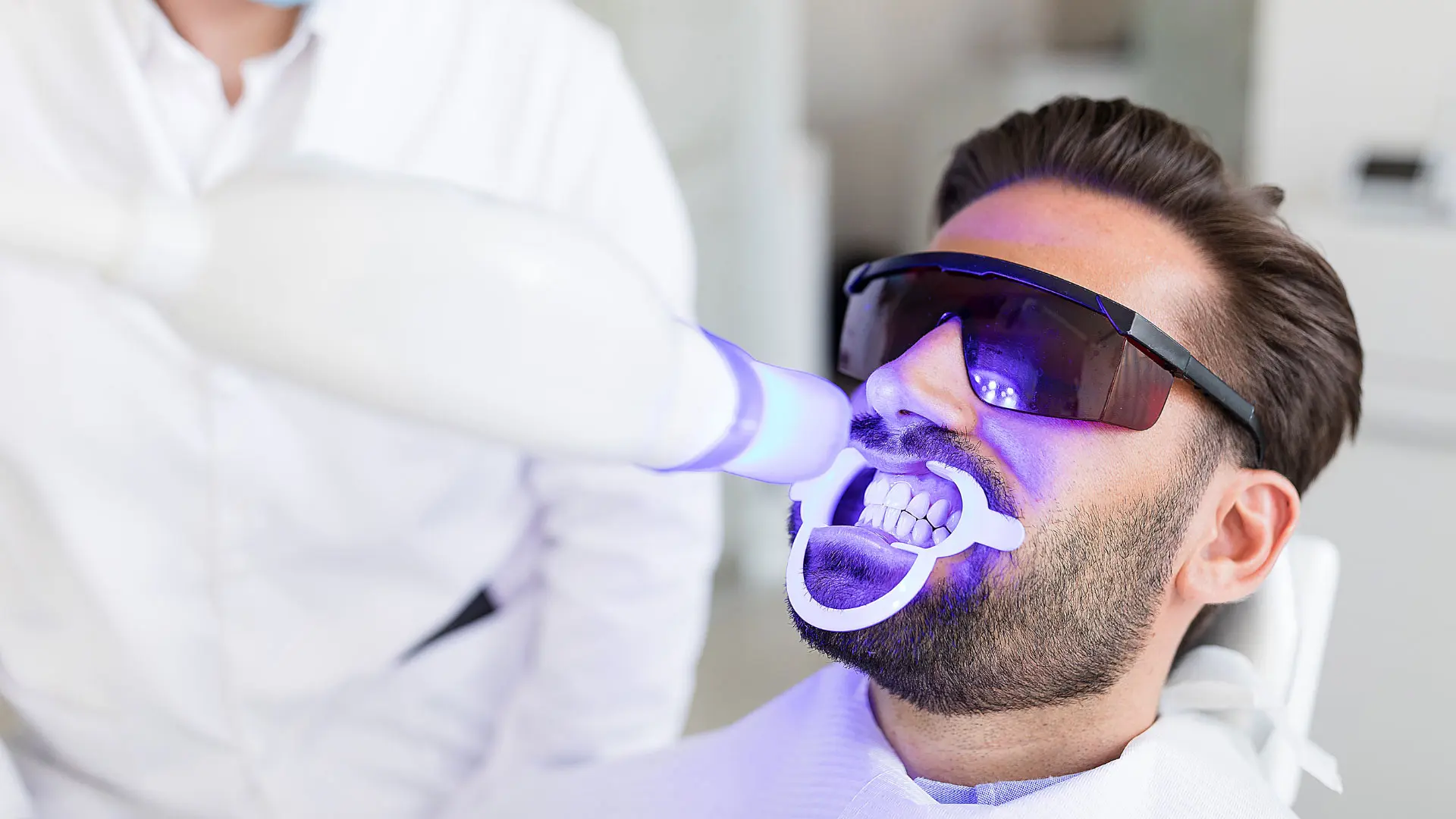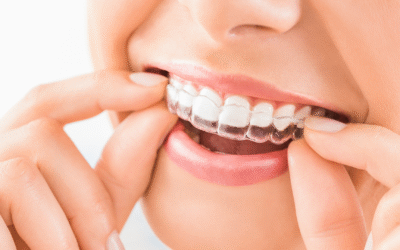As an orthodontist and orofacial pain practitioner, Dr. Daia often encounters many patients who unknowingly engage in bad oral habits that can compromise their health. Identifying and correcting these habits is crucial for maintaining a healthy, functioning smile and bite. Let’s explore some common bad oral habits and practical strategies to fix them.
Common Bad Oral Habits and Their Fixes
Nail Biting
Although it’s a relatively common habit, nail biting is detrimental to both oral and overall health. It can lead to chipped or cracked teeth, worn enamel, and increased risk of gum infections due to the transfer of bacteria from nails to the mouth. Additionally, it can cause jaw problems and discomfort from the repetitive motion and stress. It can also contribute to digestive issues from ingesting nail fragments. Beyond oral health, nail biting can result in nail infections (paronychia) and indicate underlying stress or anxiety. If the habit is caused by underlying stress and anxiety, we recommend finding alternative stress-relief methods like squeezing a stress ball, so your hands are kept busy.
To stop the habit, consider keeping nails short using a nail-trimmer, using bitter-tasting nail polish, or seeking professional help from a dentist, orthodontist, or myofunctional therapist if the habit is severe.
Using Teeth as Tools
Using teeth as tools, such as opening packages or bottles and cracking nuts, is a harmful habit that can lead to various dental issues. This practice can cause chipped or cracked teeth, damage dental restorations, and increase the risk of jaw injuries. Additionally, using teeth as tools can wear down enamel, making teeth more susceptible to decay and sensitivity.
To break this habit, keep appropriate tools like scissors or bottle openers readily available, and be mindful of the potential damage to your teeth. Educating oneself on the importance of using teeth only for eating can also help in curbing this damaging habit.
Chewing Ice
Chewing ice is a detrimental oral habit that can cause significant damage to your teeth. The hardness and cold temperature of ice can lead to chipped or cracked teeth, worn enamel, and increased tooth sensitivity. It can also harm dental work like fillings and crowns. To avoid chewing ice, opt for chilled water instead of ice cubes and keep healthy snacks like carrots or apples on hand for crunch cravings. Being mindful of the habit and finding alternatives can help protect your dental health and prevent costly repairs.
Teeth Clenching and/or Grinding (Bruxism)
Teeth grinding/clenching, or bruxism, is a harmful oral habit that can cause various dental issues, including worn enamel, fractured teeth, and increased tooth sensitivity. It can also lead to jaw pain, headaches, and temporomandibular joint (TMJ) disorders.
To prevent teeth grinding, try finding your jaw’s correct resting position by saying the letter “n”. There are also stress-reducing techniques like meditation or exercise, avoiding excessive caffeine and alcohol, and maintaining good sleep hygiene. Wearing a night guard can also protect your teeth from the damaging effects of grinding while you sleep. Consulting with a specialist like Dr. Daia can provide personalized solutions to manage and reduce bruxism.
Smoking and Tobacco Use
Smoking and tobacco use can lead to severe health issues. They cause staining of teeth, bad breath, and a significantly higher risk of gum disease, tooth loss, and oral cancers. Additionally, tobacco use can delay healing after dental procedures and diminish the sense of taste and smell. To quit, consider using nicotine replacement therapies, joining a support group, or seeking professional help. Maintaining regular dental check-ups can also provide motivation and resources to help kick the habit.
Overusing Whitening Products
Overusing whitening products can lead to tooth sensitivity, enamel erosion, and gum irritation. Excessive use of these products can strip away the protective enamel layer, making teeth more susceptible to decay and increasing sensitivity to hot and cold temperatures. It can also cause uneven whitening, leading to a less natural appearance.
To fix this issue, it is important to follow the recommended usage instructions provided by the product manufacturer or a dental professional. Limiting the frequency of whitening treatments and seeking advice from a dentist or orthodontist for safer alternatives, such as professional whitening services, can help maintain oral health while achieving desired cosmetic results. At Daia Orthodontics & TMJ Orthopedics, we offer a professional in-office whitening service that can whiten your teeth up to eight shades in as little as two hours!

Orthodontic evaluation to address bad oral habits
Regular dental check-ups and maintaining a good oral hygiene routine are also crucial in preventing and addressing any negative effects of overusing whitening products.
Chewing Gum
Chewing gum, especially when done excessively, can be a detrimental oral habit. It can lead to jaw problems, such as temporomandibular joint (TMJ) disorder, due to the repetitive motion and constant strain on the jaw muscles. Additionally, many chewing gums contain sugar, which can contribute to tooth decay and cavities if proper oral hygiene is not maintained. Even sugar-free gums can contain acidic flavorings and preservatives that may erode tooth enamel over time.
To mitigate these issues, it’s advisable to limit gum chewing to short periods and opt for sugar-free varieties with xylitol, which can help reduce cavity-causing bacteria. Practicing good oral hygiene, including regular brushing and flossing, and consulting with a dentist for personalized advice can further help in managing the habit and maintaining overall oral health.
Thumb and Finger Sucking
Thumb and finger sucking are detrimental oral habits primarily because they can lead to dental and orthodontic issues such as misalignment of teeth, changes in the structure of the mouth, and speech problems. Persistent sucking can also cause the skin on the thumb or finger to become irritated and even infected.
To address these habits, positive reinforcement techniques can be employed, such as praise and rewards for not engaging in the habit. Additionally, you can introduce distractions and alternative comfort mechanisms like stress balls or fidget toys. In some cases, using bitter-tasting nail solutions or consulting a professional for specialized advice may be necessary to help break the habit effectively. You can learn more about thumb and finger sucking in our recent blog, Understanding the Impact of Thumb and Finger Sucking on Dental Development.

Ignoring Dental Problems
Ignoring your dental problems that may seem minor in the moment can lead to more severe health issues over time. Untreated cavities, gum disease, and misaligned teeth can worsen, causing pain, infection, and tooth loss. This neglect can also impact overall health, contributing to heart disease and diabetes complications. To avoid these issues, schedule regular dental check-ups, address any dental discomfort promptly, and follow a consistent oral hygiene routine. Early intervention can save time, money, and prevent extensive treatments in the future.
Making a Change
Breaking bad oral habits is essential for long-term dental health. As your local orthodontist and orofacial pain practitioner, Dr. Daia is here to help you identify these habits and provide solutions tailored to your needs. Remember, maintaining a healthy smile goes beyond regular check-ups; it’s about adopting and sustaining good oral habits.
For personalized advice and treatment plans, schedule a consultation at our office. Let’s work together to achieve and maintain your healthiest smile.




